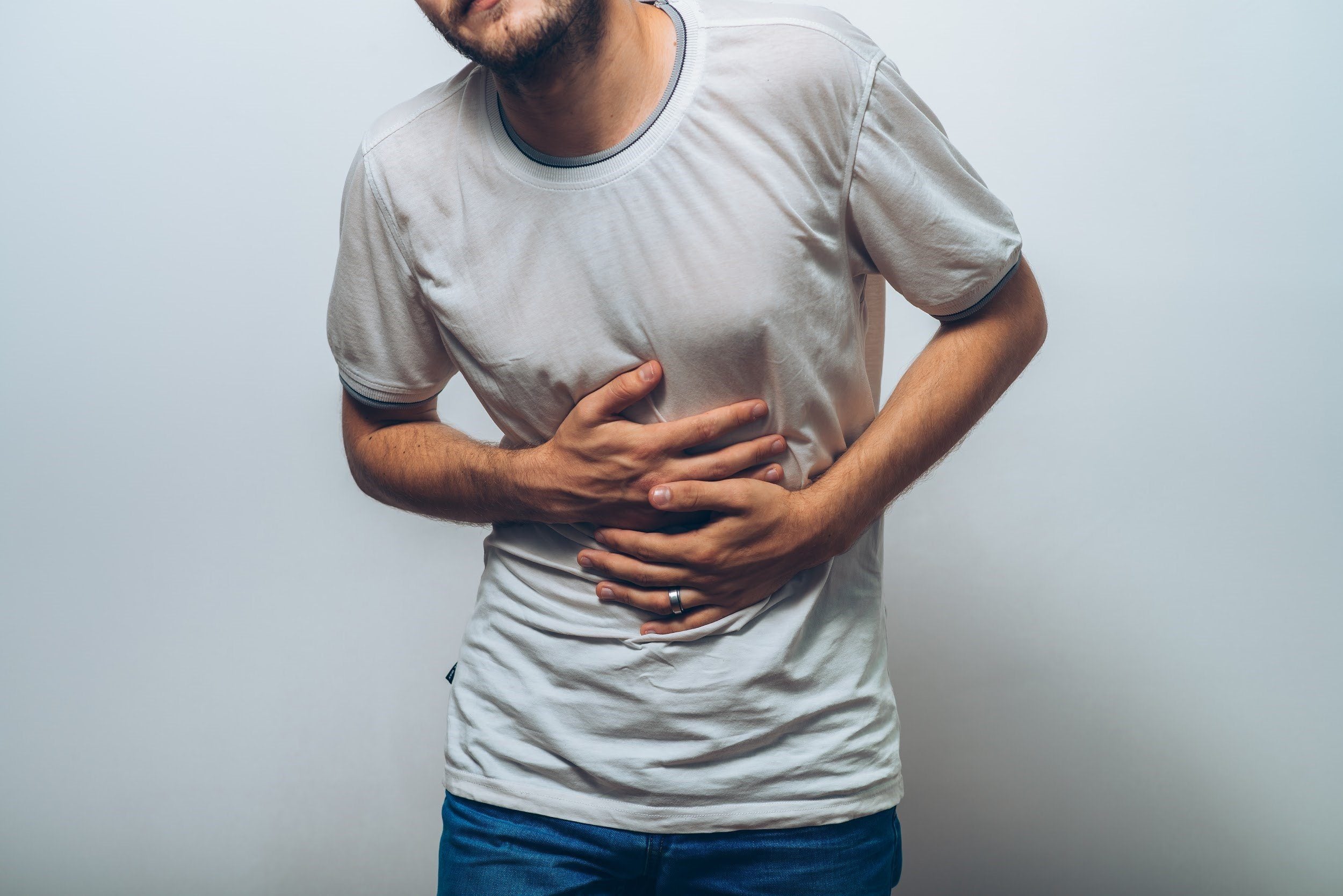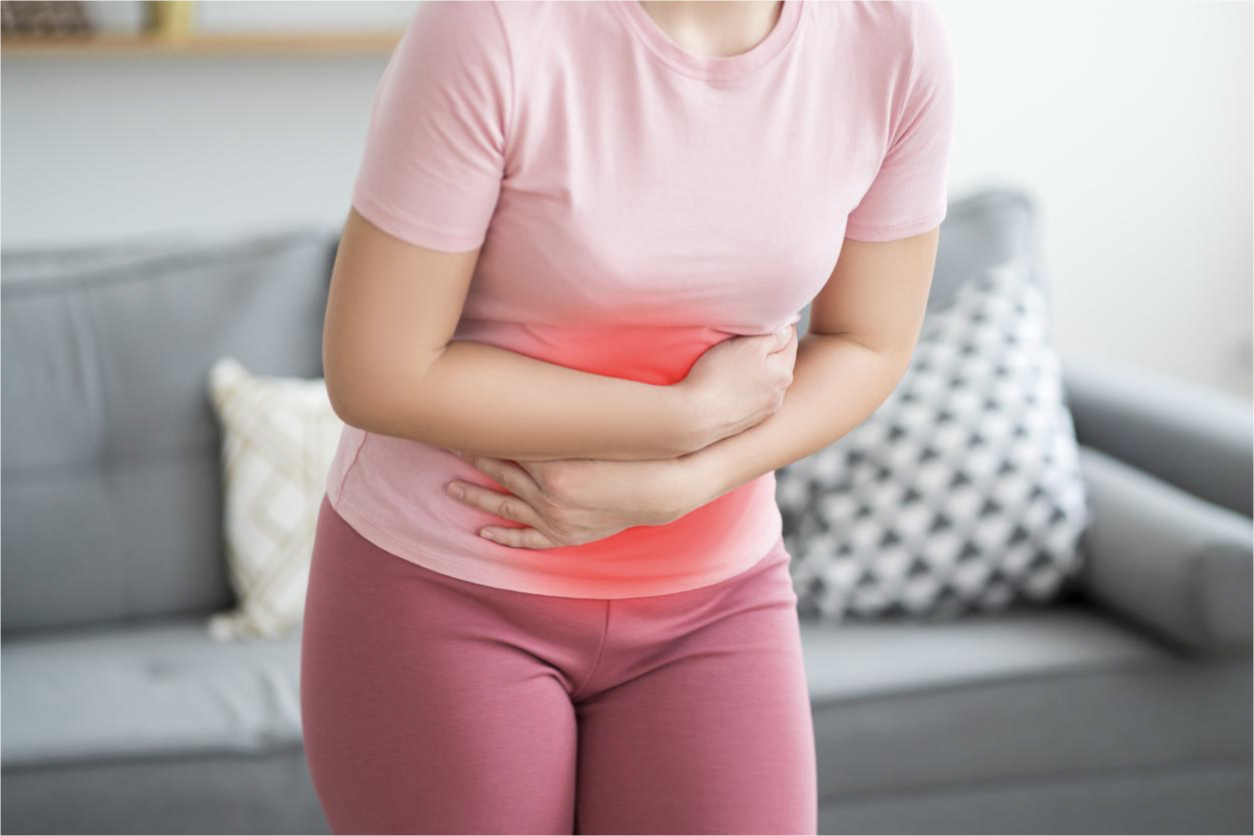As an Amazon Associate CoffeeXplore.com earns from qualifying purchases.
Coffee Upset Stomach? Why It Happens & How to Fix It
Is your daily coffee ritual more of a pain than a pleasure? For millions, that first cup is an essential part of the morning, but for a significant number, it also brings along uncomfortable side effects like stomach pain, indigestion, and an urgent need to find a restroom. This post will definitively solve the mystery of why your beloved brew might be turning against you.
Coffee can cause an upset stomach due to its caffeine content, natural acids, and other compounds, which can increase stomach acid, speed up digestion, and irritate the stomach lining, especially when combined with certain additives or habits.
Leveraging extensive analysis of available data and established patterns, this guide unpacks the science-backed reasons behind coffee-related discomfort. We’ll explore the specific culprits in your cup, identify habits that make it worse, and, most importantly, provide a clear, actionable roadmap to help you enjoy your coffee without the upset stomach.
Key Facts
- Potent Stimulant: Caffeinated coffee stimulates colon activity 60% more than water and 23% more than decaf coffee, explaining its powerful laxative effect, as highlighted by a landmark 1998 study.
- Widespread Sensitivity: Additives are a common trigger, with lactose intolerance affecting approximately 65% of the global population, making dairy-filled coffee a source of bloating, cramps, and diarrhea for many.
- Acidity Levels: Coffee’s typical pH is between 4.8 and 5.2. While less acidic than your stomach’s natural environment (around pH 2.5), it is acidic enough to stimulate your stomach to produce even more acid.
- The Roasting Factor: Dark roast coffees can be gentler on the stomach because the roasting process creates a compound, N-methylpyridinium (NMP), which may actually help reduce stomach acid production.
- Cold Brew’s Advantage: The cold brewing method is scientifically proven to be a stomach-friendly option, as the cold water extracts significantly fewer acidic compounds from the coffee grounds compared to hot brewing.
Why Your Morning Coffee Might Be Causing Stomach Pain

If you’ve ever wondered why your morning coffee hurts your stomach, you’re not alone. The connection between coffee and digestion is complex, but the discomfort often boils down to a few key scientific factors. It’s not just one thing, but a combination of coffee’s inherent properties and how you consume it. As authoritative sources like Healthline and Cleveland Clinic confirm, several elements are at play.
Let’s explore the science behind why that cup can lead to pain and what you can do about it. The primary culprits are:
- Potent Caffeine: This natural stimulant has a direct and powerful effect on your entire digestive system.
- Natural Acids: Coffee contains compounds that can provoke your stomach into producing more of its own irritating acid.
- Your Additives: What you put in your coffee—like milk, sugar, or creamers—can be a major source of trouble.
- Consumption Habits: How and when you drink your coffee can make the difference between a pleasant boost and a painful morning.
The Culprits in Your Cup: 3 Key Reasons Coffee Causes Discomfort
To understand why can coffee cause an upset stomach, we need to look inside the bean itself. The discomfort isn’t just a random side effect; it’s a direct physiological response to specific compounds that are extracted during the brewing process. The primary reasons coffee causes stomach pain are its powerful caffeine content, which stimulates gut contractions and acid production, and its collection of natural acids that can further irritate the stomach lining.
According to a foundational 1998 study, caffeinated coffee stimulates the colon a remarkable 60% more than water does, showcasing its significant impact on gut motility.
This dual action of stimulating muscle movement and increasing acidity is the core reason so many people experience digestive issues.
Quick Fact: Did you know? Even decaf coffee can stimulate your colon, just not as much as regular coffee. It’s not just about the caffeine!
1. Caffeine’s Powerful Effect on Your Digestive System
Caffeine is the most well-known compound in coffee, celebrated for its energizing effects. However, for your digestive system, it acts as a potent stimulant in two distinct ways. This dual action can lead to both diarrhea and heartburn.
- Gut Motility and Laxative Effect: Caffeine increases peristalsis, the wave-like muscle contractions that move food through your digestive tract. When this process is sped up in the colon, it can lead to cramping and diarrhea, which is why coffee has a well-known laxative effect for many people.
- Increased Stomach Acid: Caffeine also signals your stomach to produce more gastric acid. For some, this extra acid can overwhelm the stomach’s protective lining, leading to the burning sensation of heartburn, indigestion, and the aggravation of acid reflux symptoms.
2. The Role of Coffee’s Natural Acidity
Many people ask, “is coffee acidic?” The answer is yes. Coffee contains numerous acids, including chlorogenic acid (CGA) and N-alkanoyl-5-hydroxytryptamide, which contribute to its signature flavor profile. These acids stimulate your stomach to produce more of its own highly potent acid (hydrochloric acid). This is the key mechanism that can irritate the stomach lining and cause discomfort for sensitive individuals.
Coffee typically has a pH level between 4.8 and 5.2. While this is far less acidic than your stomach’s natural acid (which has a pH of around 2.5), it’s enough to trigger an increased acidic response.
Think of it like poking a sleeping bear – coffee’s acidity might not be the bear itself, but it’s enough to wake up your stomach’s own powerful acid production, leading to irritation and pain.
3. Other Compounds: The Dark Roast vs. Light Roast Debate
Interestingly, not all compounds in coffee are bad for your stomach. The roasting process changes coffee’s chemical makeup, and this can have a significant impact on its digestive effects. Lighter roasts tend to retain more chlorogenic acids (CGAs), which are known to increase stomach acid.
Conversely, dark roast coffees contain higher levels of a compound called N-methylpyridinium (NMP). Research suggests this compound, formed during the roasting process, may actually do the opposite: it can reduce stomach acid secretion. This is why some people find that darker, more intensely roasted coffees are surprisingly gentler on their stomachs than lighter, brighter roasts.
How You Drink Your Coffee Matters: Habits That Worsen Stomach Pain
Sometimes, the problem isn’t the coffee itself, but the habits surrounding your consumption. Drinking coffee on an empty stomach and adding dairy or sweeteners are two common practices that can significantly worsen stomach upset by increasing irritation and introducing triggers for intolerance, like lactose.
Pro Tip: Before blaming the coffee bean, take a look at what you’re adding to it. The culprit might be in your creamer or sugar packet.
- Drinking on an Empty Stomach
When you drink coffee without any food, there’s nothing to act as a buffer. The caffeine and acids hit your stomach lining directly, which can amplify the production of stomach acid and lead to irritation, heartburn, and abdominal pain. The laxative effects of caffeine are also often more pronounced on an empty stomach, increasing the likelihood of discomfort. -
Adding Dairy or Sweeteners
What you add to your coffee can be a major hidden source of stomach upset. Dairy products like milk and cream contain lactose, and a huge portion of the population has difficulty digesting it. It is estimated that lactose intolerance affects approximately 65% of people globally. For these individuals, adding dairy to coffee can cause bloating, gas, cramps, and diarrhea. Furthermore, artificial sweeteners are known to cause gastrointestinal distress in some people, leading to similar symptoms.

Are You More Susceptible? Coffee’s Impact on Health Conditions
For the general population, coffee in moderation is typically fine. However, individuals with pre-existing gastrointestinal conditions are often much more susceptible to a coffee upset stomach. This is because coffee’s stimulating and acidic properties can directly aggravate the symptoms of these disorders, turning a simple cup of coffee into a significant trigger for pain and discomfort.

If you have one of the following conditions, you may need to be extra cautious:
- Gastritis: This condition is defined by inflammation of the stomach lining. Because coffee increases stomach acid, it can directly irritate this already-inflamed tissue, worsening pain and discomfort.
- Gastroesophageal Reflux Disease (GERD): Coffee can be a double-edged sword for GERD sufferers. Studies show it can relax the lower esophageal sphincter (LES), the muscular valve that keeps stomach acid from flowing back up into the esophagus. Combined with its ability to increase acid production, this can significantly worsen heartburn and reflux.
- Irritable Bowel Syndrome (IBS): For those with IBS, especially the diarrhea-predominant type (IBS-D), coffee’s stimulating effect on the gut can be a powerful trigger. The caffeine can accelerate colon contractions, leading to urgent bowel movements, cramping, and gas.
- Peptic Ulcers: While coffee doesn’t cause ulcers, it can certainly aggravate them. The increase in stomach acid can intensify the pain and discomfort associated with an existing ulcer on the stomach lining.
- Caffeine Sensitivity: Some people are simply more sensitive to caffeine due to their genetic makeup. They may metabolize it more slowly, leading to more pronounced side effects like jitters, anxiety, and, importantly, a coffee upset stomach.
8 Ways to Enjoy Coffee Without an Upset Stomach (Updated for 2025)
The good news is that experiencing a coffee upset stomach doesn’t necessarily mean you have to give it up forever. By making a few strategic changes to what you drink and how you drink it, you can often mitigate the worst of the side effects. The key is to reduce acidity and buffer your stomach from coffee’s stimulating effects.
To avoid stomach upset from coffee, try drinking it with food, choosing darker roasts or cold brew, switching to low-acid beans, using non-dairy milks, and reducing your overall daily intake.
Here are eight proven strategies to make your coffee ritual more stomach-friendly:
- Never Drink on an Empty Stomach: Having food in your stomach acts as a protective buffer. Eat a piece of toast, some yogurt, or a banana before or with your coffee to reduce irritation.
- Choose Darker Roasts: As we learned, the longer roasting process breaks down more acids and creates the compound NMP, which can help lower stomach acid. Opt for a French or Italian roast over a light roast.
- Switch to Cold Brew: Cold brew is naturally less acidic. The cold-water extraction process pulls fewer of the acidic oils and compounds from the grounds, resulting in a smoother, gentler brew.
- Try Low-Acid Coffee Beans: Many brands now specifically cultivate and process coffee beans to have lower acidity. Look for these “stomach-friendly” or “low-acid” options online or in stores.
- Re-evaluate Your Additives: If you have lactose intolerance, switch from dairy milk to a plant-based alternative like almond, soy, or oat milk. Also, try cutting back on sugar and artificial sweeteners.
- Use a Coarser Grind: Finer coffee grounds have more surface area, which leads to a greater extraction of acidic compounds during brewing. Using a coarser grind can result in a less acidic cup.
- Reduce Your Intake: Sometimes, the solution is simply less. Try cutting back from three cups a day to one, or have a smaller cup. Pay attention to how your body feels to find your personal limit.
- Stay Hydrated with Water: Coffee can be a diuretic. Drinking a glass of water before or alongside your coffee can help keep your digestive system balanced and hydrated.
| Method | Acidity Level | Why It Works |
|---|---|---|
| Hot Brew | Higher | Standard extraction pulls out more acidic compounds. |
| Cold Brew | Lower | Fewer acidic compounds are extracted with cold water. |
| Dark Roast | Lower | The roasting process breaks down acids and creates NMP. |
Which of these strategies could you easily try this week? Sometimes a small change makes a big difference.
For those looking to easily find stomach-friendly coffee options, exploring low-acid coffee beans or convenient non-dairy creamers can be a great first step.
FAQs About can coffee cause an upset stomach
Here are answers to some of the most common questions people have about the link between coffee and stomach issues.
Why is my stomach sensitive to coffee all of a sudden?
A sudden sensitivity to coffee can be unsettling, but it often has a logical explanation. If you’re wondering, “why can coffee cause an upset stomach now when it didn’t before?” consider these possibilities:
* Change in Coffee: You may have switched to a different brand or roast. Lighter roasts are more acidic, and some lower-quality beans can contain molds that cause irritation.
* Developing a GI Condition: Sudden sensitivity could be an early sign of a developing issue like gastritis or GERD.
* Changes in Habits: Have you started drinking coffee on an empty stomach more often or changed your diet in other ways? These factors can influence your tolerance.
Does coffee actually hurt the lining of your stomach?
For most healthy individuals, coffee does not directly damage or hurt the stomach lining. However, it can absolutely make existing problems worse. The key distinction is irritation versus causation. While coffee doesn’t cause conditions like peptic ulcers, its ability to increase stomach acid production can significantly worsen the inflammation of gastritis or the pain from an existing ulcer.
Why does coffee make my stomach hurt and cause diarrhea?
This common two-part problem has two distinct causes. The stomach pain is often from increased acid production irritating your stomach lining. The diarrhea is from caffeine’s powerful stimulating effect on your colon, which speeds up contractions and pushes contents through your system faster than normal, creating a laxative effect. Adding dairy if you’re lactose intolerant can also contribute to both symptoms.
Is cold brew or iced coffee easier on the stomach?
Yes, cold brew coffee is generally easier on the stomach than both hot coffee and traditional iced coffee (which is just hot-brewed coffee that has been cooled). The reason is chemistry: the cold-water brewing process, which takes 12-24 hours, extracts far fewer of the bitter, acidic compounds from the coffee grounds. This results in a naturally smoother and less acidic beverage that is much gentler on the digestive system.
Will switching to decaf coffee solve the problem?
Switching to decaf coffee might solve the problem, but only if your sensitivity is primarily to caffeine. If caffeine’s stimulating effects (like diarrhea or jitters) are your main issue, decaf can be a great solution. However, decaf coffee still contains the natural acids found in regular coffee. If your stomach pain is caused by a sensitivity to coffee’s acidity, then decaf will likely still cause some discomfort.
Final Summary: Enjoying Coffee While Protecting Your Stomach
Understanding that coffee can cause an upset stomach is the first step toward reclaiming your morning ritual. The discomfort isn’t in your head; it’s a real physiological response to a combination of caffeine, natural acids, and personal consumption habits. By identifying your specific triggers—whether it’s the acidity of a light roast, the milk in your latte, or the habit of drinking on an empty stomach—you can take targeted action.
This guide has armed you with a clear understanding of the ‘why’ and a practical toolkit for the ‘how-to’. You now have the knowledge to experiment intelligently and find a way to enjoy coffee without the painful side effects.
- Acknowledge the Culprits: Recognize that caffeine and coffee’s natural acids are the primary drivers of stomach acid production and gut stimulation.
- Mind Your Habits: Drinking coffee with food and being mindful of additives like dairy and sugar are powerful, simple changes.
- Choose Wisely: Opting for darker roasts, low-acid beans, or cold brew can significantly reduce the acidic load on your stomach.
- Listen to Your Body: If you have a pre-existing condition like GERD or IBS, be extra cautious and consider reducing your intake or consulting a healthcare professional.
Take control of your coffee routine! Start by trying one new strategy this week—like having a small bite of food first or trying a darker roast—and see how your stomach responds.
Last update on 2025-12-05 / Affiliate links / Images from Amazon Product Advertising API

